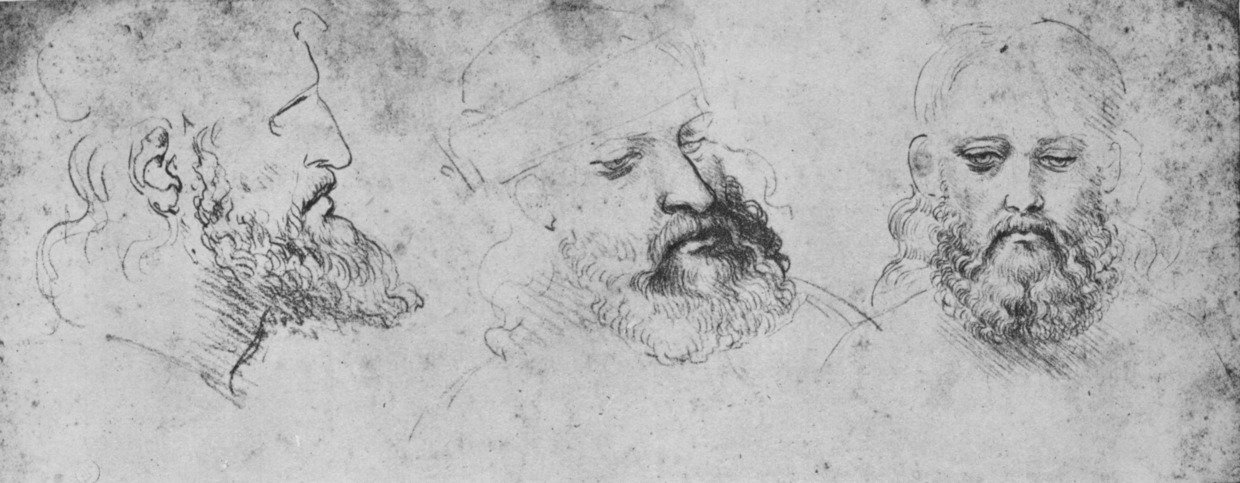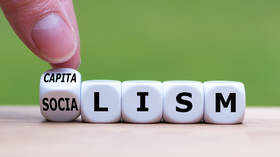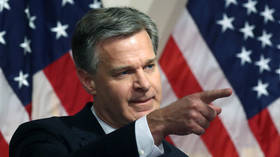It was OK for Da Vinci to take money from the Borgias. Does this mean the arts should accept Shell & BP funding today?

Another ‘fossil fuel’ company has withdrawn from sponsorship of the arts because of eco-activists. But it’s misguided — such funding is vital, particularly for artists who are shut out of state-approved multiculturalism.
Following pressure from campaigners, Shell has withdrawn funding for two leading British arts organisations, the Southbank Centre and British Film Institute. Criticism centred on Shell’s activity of extracting, processing and supplying oil and gas. A spokesman for the main campaign group opposing the company stated “Shell has pursued a business plan that has trampled indigenous people’s rights and pushed the world deeper into climate crisis.”
The supposedly ethical nature of the campaign against “big oil” is embodied in the lobby group’s name: Culture Unstained. The group is dedicated to purge big-oil sponsorship from the arts. There is a common perception that fossil-fuels are unethical. Last year, British actor Mark Rylance resigned from the Royal Shakespeare Company because of its links to BP.
Yet how much have campaigners thought through their opposition to oil-company sponsorship?
Technological and social progress has depended on oil and gas. While eco-activists have focused on pollution by oil leaks and damage caused to wilderness by drilling, they have overlooked an essential benefit. The products of oil extraction — in the form of plastic — have provided humanity with a material that is cheap, light, portable and versatile. Affordable medicine, food packaging, sterile products and hygienic water supply depend on plastic products and yearly save millions of lives worldwide. What alternative do activists propose? When substitute technologies (including processed plant fibre) become financially viable they will be adopted; until then, we are reliant on plastic.
People are already alert to the absurdity of millionaire actors flying in private jets to awards ceremonies to lecture people on fossil fuels. What environmentalists do not admit often enough is that green consumption is a trade-off, transferring monetary cost and environmental impact between different areas and industries. The harshest criticism of eco-activists of the West is that they expect the poor of the world to pay the cost — in dollars and lives — for their moral grandstanding.
Also on rt.com Hits from the recent past that could NEVER survive in today’s PC cultureMoral Cleansing of the Arts
Campaigns against sponsorship by supposedly unethical firms have a long history. As British parliamentary legislation forced tobacco companies out of sports funding, the money moved into art. John Player, a British tobacco firm, funded a portrait award exhibition, held annually at London’s National Portrait Gallery. In 1989, it withdrew and BP took over sponsorship. The gallery has since come under intermittent pressure to severe ties to BP, including attempts to disrupt the event.
Another art prize, sponsored by Hunting, an oilfield services company, is now defunct, after becoming subject to protests.
In recent years, campaigns against the Sackler Trust have been waged in the USA and UK. London’s National Portrait Gallery last year rejected accepting a £1m grant from the Trust, over the damaging medical impact of OxyContin, a drug produced by the family’s pharmaceutical company. Yet these drugs are also necessary anaesthetics.
But private sponsorship provides opportunities for conservative or dissident artists, who find themselves shut out of the state-approved multiculturalism and Postmodernism. Audiences and creatives yearn for support of non-state sponsors so as to allow a genuine diversity of thought to thrive in the arts.

The Myth of Moral Purity
As for ethics, let’s take a history lesson: the greatest art has had questionable benefactors.
If we start to tie art to the morals of patrons, we enter murky waters. Velázquez is one of the greatest of European portraitists. He was court painter to Philip IV of Spain, who pursued the Thirty Years War, one of the most destructive conflicts in human history, and the bloody suppression of Flanders. What about the art of Leonardo, Raphael, Michelangelo and others? They were all supported by unsavoury individuals. Cesare Borgia — one of the most brutally psychotic of warlords during the Italian Renaissance — was patron of Leonardo da Vinci. Leonardo died in the arms of Francis I of France, a monarch acclaimed as a cultured and refined man, but one who authorised torture and execution of heretics.
Campaigners focus on direct backers, but do not address the moral complexity of the web of influences and funding in any advanced economy.
The idea that creators of culture should not be morally contaminated by unethical money is presumptuous vanity. We negotiate moral decisions every day and can never completely be freed of ethical culpability. We are all compromised by participating in a globalised consumerist society; our health, security and prosperity depend on fossil-fuel products for the foreseeable future.
Every day we exercise ethical discrimination. Let’s not let lobbyists infantilize us. Allow us consumers, though our participation or not, to decide what we consider ethically acceptable sponsorship.
Think your friends would be interested? Share this story!
The statements, views and opinions expressed in this column are solely those of the author and do not necessarily represent those of RT.













